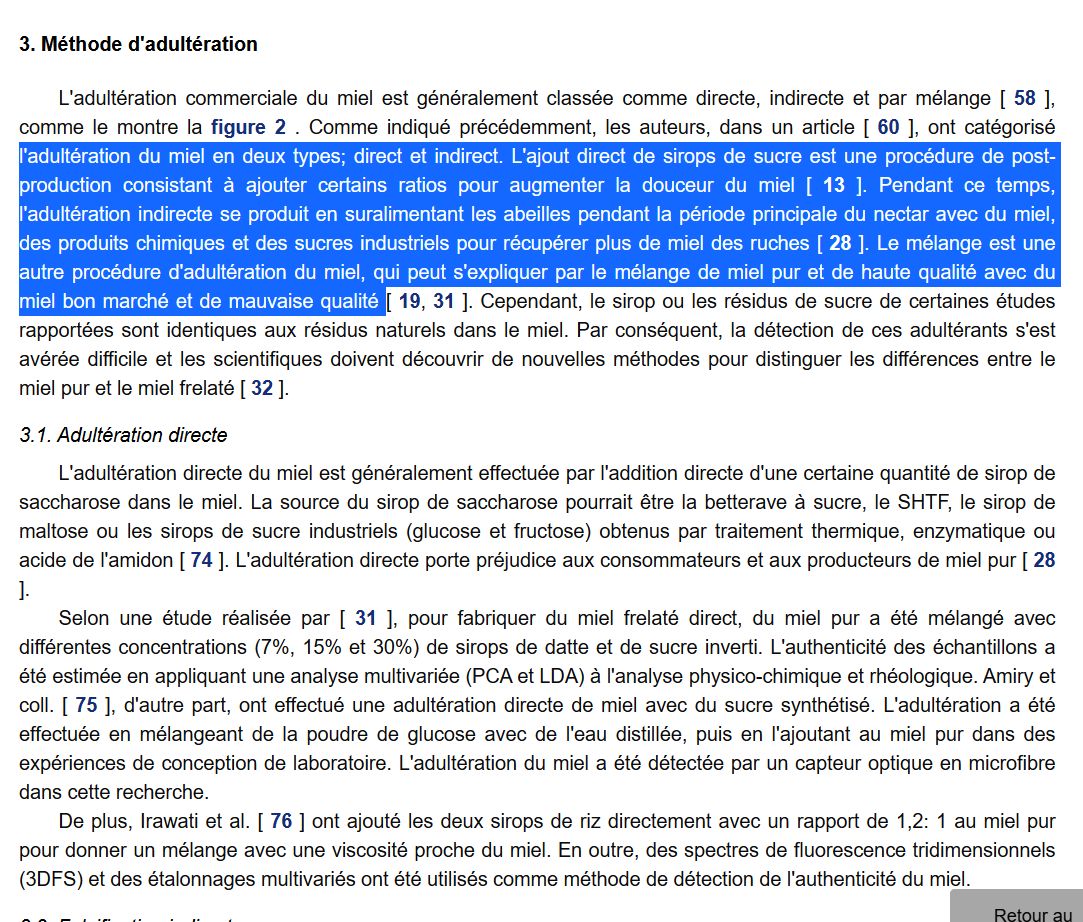The Toxic Impact of Honey Adulteration: A Review
by Rafieh Fakhlaei Foods 2020, 9(11), 1538;
Honey is characterized as a natural and raw foodstuff that can be consumed not only as a sweetener but also as medicine due to its therapeutic impact on human health. It is prone to adulterants caused by humans that manipulate the quality of honey. Although honey consumption has remarkably increased in the last few years all around the world, the safety of honey is not assessed and monitored regularly. Since the number of consumers of honey adulteration have increased in recent years, their trust and interest in this valuable product has decreased.
Honey adulterants are any substances that are added to the pure honey. In this regard, this paper provides a comprehensive and critical review of the different types of adulteration, common sugar adulterants and detection methods, and draws a clear perspective toward the impact of honey adulteration on human health. Adulteration increases the consumer’s blood sugar, which can cause diabetes, abdominal weight gain, and obesity, raise the level of blood lipids and can cause high blood pressure. The most common organ affected by honey adulterants is the liver followed by the kidney, heart, and brain, as shown in several in vivo research designs.














